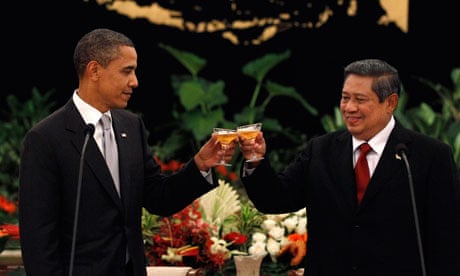In a move that has surprised and delighted access to medicines campaigners, Indonesia's government has quietly issued an order to override the patents on seven important medicines used to treat people with HIV and hepatitis B and allow cheap versions to be made by local drug companies.
The "government use" order was made on 3 September, but with no fanfare and, as yet, no public outcry from the pharmaceutical giants which, in the past, used to defend their patents volubly and aggressively – through the courts as well as diplomatic back-channels. Times have changed somewhat, with much greater public awareness of the toll of treatable diseases and the high price of medicines in developing countries. The biggest fights now are in India, where Big Pharma is battling to preserve its patents, arguing that India's thriving generic companies will sell not just to the poor but to the whole world.
But what has happened in Indonesia is remarkable for its scale. It appears that the government of President Susilo Bambang Yudhoyono has decided to license the entire slate of medicines its population needs against HIV. It already had an order from 2007 for three older HIV drugs (efavirenz, lamivudine and nevirapine), but the new decree states specifically that this is "no longer sufficient".
The drug patents belong to Merck, GSK, Bristol Myers Squibb, Abbott and Gilead. The drugs include Glaxo's Abacavir and Abbott's Kaletra, which are both useful combinations, as well as Gilead's tenofovir (Viread), which treats hepatitis B as well as being the mainstay of the new prevention treatment for people whose partners are HIV positive. The order says the companies will receive a 0.5% royalty.
Public Citizen, which has long argued for developing countries to be allowed to bypass patent protections on drugs in order to be able to afford to treat their people – and has a Kaletra access campaign here – is delighted. Peter Maybarduk said:
We see this as potentially a massively important precedent. We think the world needs these examples. It is the sort of thing that can drive public health outcomes.
This is the single broadest use of licensing powers for a country since the advent of the Trips agreement. For us that's a big deal.
He added that a great deal depends on implementation. At the moment, the order is just a statement of intent. Public Citizen has more details of the Indonesian move here.
Indonesia does not have a particularly high incidence of HIV – Unicef estimates around 310,000 people are infected – but it has the fourth largest population in the world, and the virus is spreading. Abbott sells Kaletra at about $1,000 a year to public programmes, but earnings in this middle-income country are $2,900 a head. Only around 23,000 of the 70,000 people with HIV who need drug treatment are getting it.

Comments (…)
Sign in or create your Guardian account to join the discussion